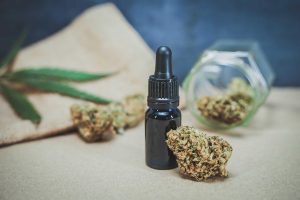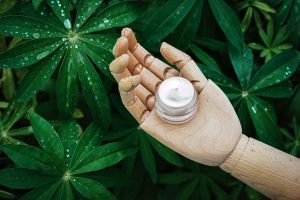Medical Marijuana for Concussions
- Fact-checked by Dr. Desiree Granados
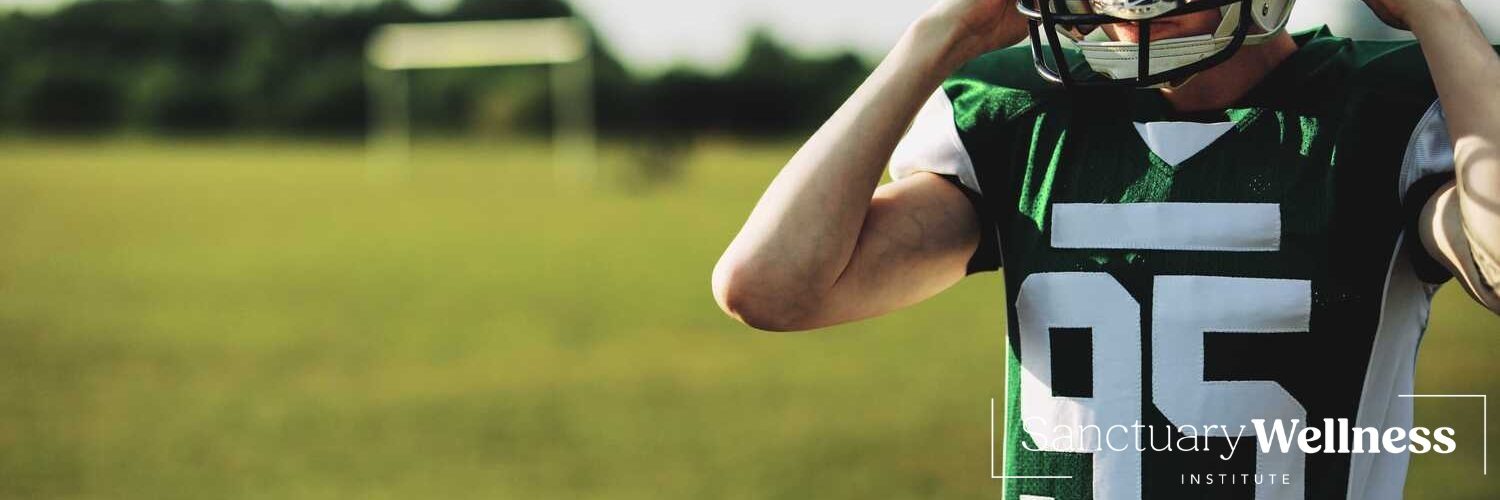
Concussions are a type of traumatic brain injury that have become an increasingly prominent topic in both medicine and sports. As we continue to learn more about the long-term impact of concussions, interest in exploring alternative treatments has grown. In this article, we’ll explain whether marijuana can help with concussions, whether you can get an MMJ card to use it for that purpose, and more.
Does Marijuana Help with Concussion Recovery?
Research indicates that marijuana may be able to aid in concussion recovery.
Some evidence suggests that marijuana’s active compounds, particularly cannabidiol (CBD), may offer neuroprotective and anti-inflammatory benefits. More specifically, these compounds may help alleviate concussion symptoms like headaches, nausea, and anxiety. In addition, CBD has been shown to reduce intracranial hypertension, or pressure around the brain that causes headaches and vision changes.
That said, more research is needed to confirm the efficacy and safety of using marijuana for concussion recovery.
What Is a Concussion and What Are the Symptoms?
A concussion is a type of mild traumatic brain injury caused by a blow or jolt to the head or body that causes the brain to move rapidly inside the skull. This sudden movement can create chemical changes in the brain and sometimes stretch and damage brain cells.
Concussions are often caused by contact sports, car accidents, or falls. While they are typically not life-threatening, they can bring about serious symptoms that require medical attention.
The symptoms of a concussion include:
- Headache or a feeling of pressure in the hea
- Temporary loss of consciousness
- Confusion or fogginess
- Dizziness or “seeing stars”
- Ringing in the ears
- Nausea or vomiting
- Slurred speech
- Fatigue or drowsiness
Marijuana for Post-Concussion Syndrome
Post-Concussion Syndrome (PCS) is a complex disorder characterized by a variety of symptoms that persist for weeks or even months after a concussion occurs. Common symptoms include headaches, dizziness, cognitive difficulties, irritability, and depression.
Emerging research suggests that marijuana might offer therapeutic benefits for individuals suffering from PCS. For instance, marijuana is believed to have anti-inflammatory properties that could help reduce headaches. Additionally, it may support mood stabilization and relieve anxiety, which are common symptoms associated with PCS.
However, more scientific studies are needed to fully understand the efficacy and safety of using marijuana for PCS.
Can You Get a Medical Marijuana Card for Concussions?
Illinois is the only state that lists “Post-Concussion Syndrome” as a qualifying condition for a medical marijuana card, while Louisiana is the only state that lists “a concussion diagnosed by an authorized clinician.”
However, you might still be able to get a medical marijuana card for concussions in other states. For example, Maryland allows doctors to recommend marijuana if the patient suffers from “any severe condition for which other medical treatments have been ineffective.” Similarly, doctors in New York, Virginia, and Washington D.C. may approve medical cannabis for any condition, including concussions and their associated symptoms.
See our interactive map “Marijuana Laws by State” for more info about the medical marijuana regulations where you live.
How to Use Marijuana for a Concussion
Some of the best marijuana consumption methods for patients recovering from concussions include:
- Vaporizing: Using a vaporizer allows for the inhalation of marijuana without the harmful byproducts of smoking. This method delivers quick relief and is less irritating to the lungs.
- Edibles: Marijuana-infused foods can provide long-lasting effects, which can be beneficial for sustained symptom management. However, these products’ onset times are slower than other methods, and careful dosage is crucial to avoiding overconsumption.
- Tinctures: These liquid extracts are taken sublingually (under the tongue) for quick absorption and rapid effects. Tinctures also offer precise dosing, making it easier to manage your intake.
- Topicals: Topical applications such as creams or balms can help alleviate localized pain without causing any psychoactive effects, making them ideal for those seeking relief from inflammation or discomfort.
- Capsules: This method provides a controlled dosage and is easy to integrate into your daily regimen. They’re ideal for those who prefer a traditional and discreet way of consumption without the need to taste or inhale marijuana.
Ultimately, the best consumption method for you will depend on your symptoms and your body’s response to each type. The Sanctuary recommends consulting a physician before using cannabis for concussion recovery.
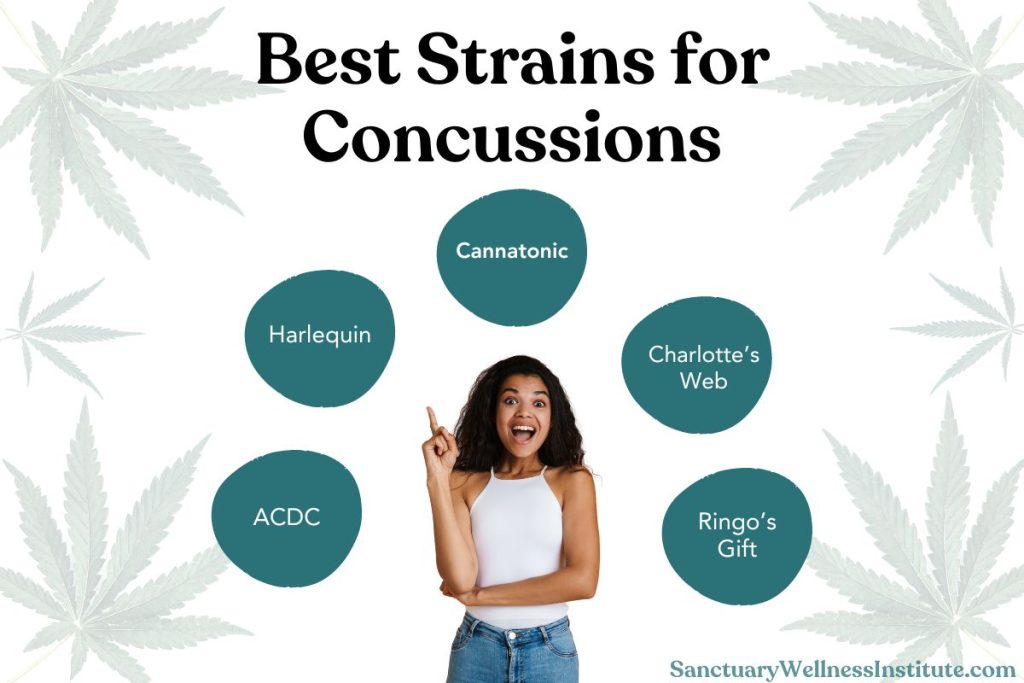
What Are the Best Marijuana Strains for Concussions?
Typically, CBD-heavy cannabis strains offer the most benefits for concussion patients. For that reason, it’s advisable to seek out indica strains, which are known for their high CBD content and relaxing effects.
Not everyone reacts to marijuana strains in the same way, but the following strains represent some of the best options for those recovering from concussions.
- ACDC: Known for its extremely high CBD content and minimal THC levels, ACDC offers relaxing effects, making it ideal for reducing inflammation and managing pain.
- Harlequin: This sativa-dominant strain boasts a high CBD to THC ratio, providing anxiety relief that can aid in post-concussion recovery.
- Cannatonic: As a hybrid strain with a low THC and high CBD content, Cannatonic is famed for its calming effects and its ability to alleviate muscle spasms and migraines.
- Charlotte’s Web: Originally developed for its potent anti-seizure properties, this high-CBD strain is also effective at promoting relaxation and easing headaches.
- Ringo’s Gift: This strain combines high CBD levels with THC in various ratios, offering a balanced effect that can help you manage stress and discomfort while recovering from a concussion.
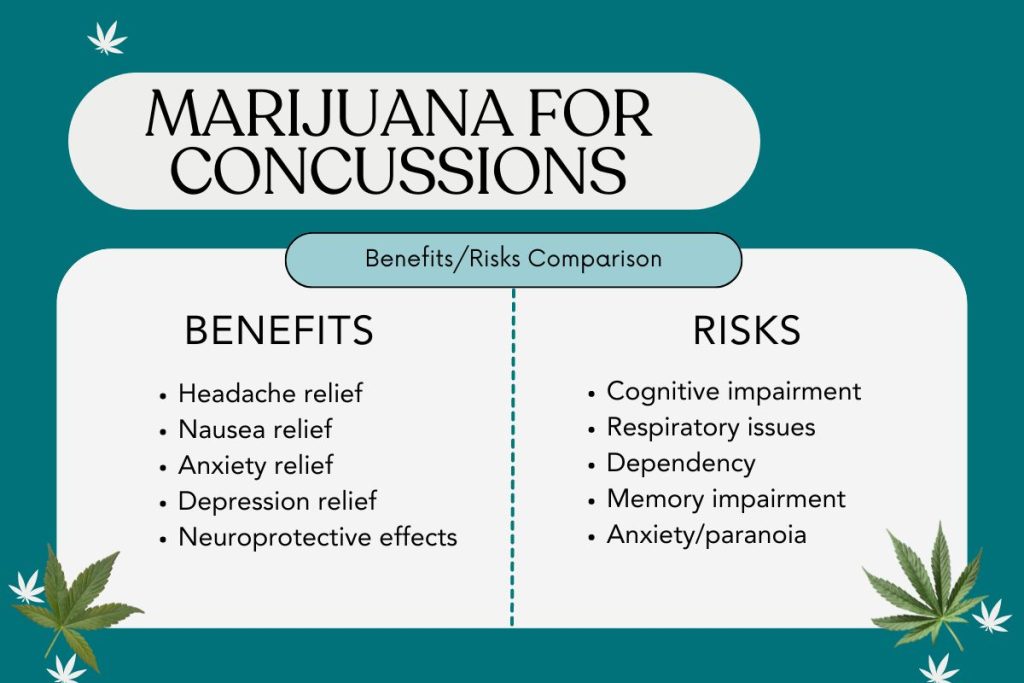
What Are the Potential Risks and Side Effects of Using Cannabis for Concussions?
While cannabis can offer numerous benefits for recovering concussion patients, there isn’t enough scientific evidence to conclusively affirm that using it for that purpose is safe. Smoking marijuana can introduce several compounds into the body that may affect brain function, potentially complicating the healing process.
Some of the foremost risks and side effects to consider include:
- Cognitive impairment
- Dependency and addiction
- Respiratory issues
- Altered judgment and perception
- Increased heart rate
- Anxiety or paranoia
- Impaired memory
As long as you consult a medical marijuana doctor before using cannabis for concussion recovery, your odds of experiencing serious side effects will be minimal.
Conclusion
In conclusion, while medical marijuana represents a promising alternative for managing post-concussion symptoms, it’s essential to approach this treatment with caution. Consultation with a knowledgeable healthcare provider is crucial, as they can offer guidance tailored to your specific condition and needs.
If you’re looking to use medical cannabis for a concussion or another qualifying condition, The Sanctuary Wellness Institute can connect you with a medical marijuana doctor and guide you through the process of applying for a medical marijuana card.
States Where We Offer Medical Marijuana Card Services
How we reviewed this article:
- Danielle C. Hergert, Cidney Robertson-Benta, Veronik Sicard, Daniela Schwotzer, Kent Hutchison, Dan P. Covey, Davin K. Quinn, Joseph R. Sadek, Jacob McDonald, and Andrew R. Mayer (2021). Use of Medical Cannabis to Treat Traumatic Brain Injury
https://www.ncbi.nlm.nih.gov/pmc/articles/PMC8260892/ - Fresh Toast and Nicole Skrobin (2019). Cannabis: Optimal treatment method for post-concussion syndrome symptoms
https://www.chicagotribune.com/2019/08/30/cannabis-optimal-treatment-method-for-post-concussion-syndrome-symptoms/ - Cleveland Clinic (2023). Marijuana (Cannabis, Weed)
https://my.clevelandclinic.org/health/articles/4392-marijuana-cannabis
Current Version
September 17, 2024
Written By
Nicholas DiBella
Fact-checked By
Dr. Desiree Granados
Editorial Process
Our Editorial Process

Nicholas DiBella received his psychology degree from West Chester University of Pennsylvania and has been writing content for the Sanctuary Wellness Institute since 2023. He is passionate about all things health & wellness.


